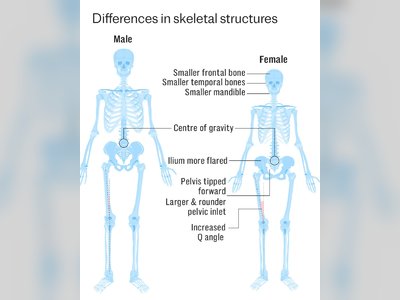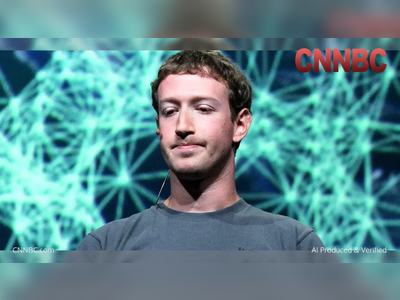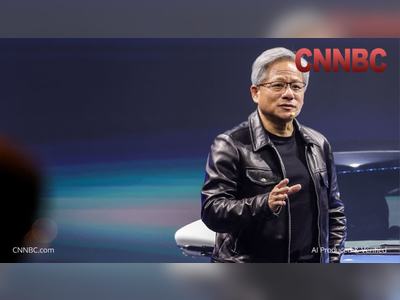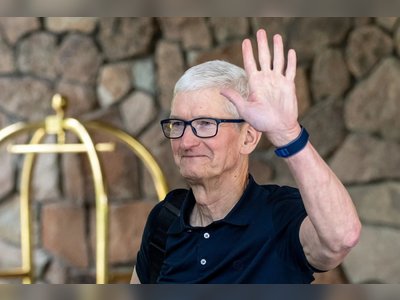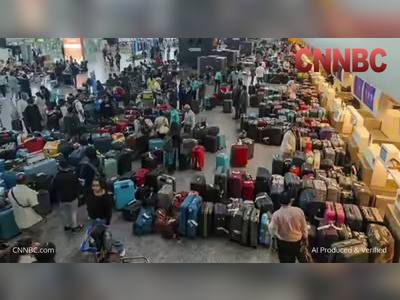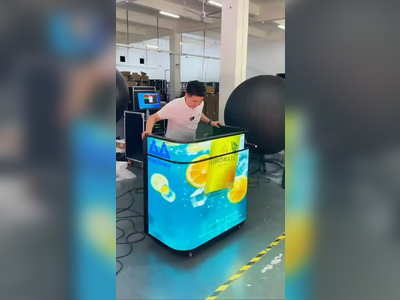
OpenAI Enters Nuclear Security Arena with U.S. Partnership
AI firm OpenAI collaborates with U.S. national labs to enhance nuclear weapons security, raising both hopes and concerns over the technology's reliability.
OpenAI, a leading artificial intelligence firm, has entered a partnership with the U.S. Department of Energy's national laboratories to enhance the security of the United States' nuclear weapons.
This move, which marks a significant step in the company’s growing collaboration with the U.S. government, comes with both optimism and concerns.
The deal will allow up to 15,000 scientists working in the national laboratories access to OpenAI's advanced AI models, particularly those in the o1 family, which are designed for deep data analysis and advanced inference.
OpenAI will also cooperate with its major investor, Microsoft, to deploy these models on Venado, the supercomputer located at Los Alamos National Laboratory.
According to OpenAI, the technology is expected to help reduce the risk of nuclear warfare and improve the security of hazardous materials.
However, experts in the field have expressed reservations, citing the known vulnerabilities of OpenAI’s models to information leaks and factual errors.
While the company has promised enhanced security systems, the risk of exposing highly sensitive data remains a concern.
This development comes shortly after the launch of ChatGPT Gov, a platform developed by OpenAI specifically for the U.S. government, enabling secure input of sensitive data into the company’s AI models.
OpenAI is also participating in the 'Stargate' project, an initiative spearheaded during the Trump administration, aimed at establishing the U.S. as the global leader in artificial intelligence with a planned investment of $500 billion.
These collaborations have positioned OpenAI at a critical nexus between Washington and Silicon Valley, but they have also sparked concerns about the influence of a private company on U.S. technology policy.
Sam Altman, CEO of OpenAI, has shifted his stance on former President Trump, who he previously criticized, now contributing $1 million to the new president’s inauguration fund.
This shift in attitude underscores the increasingly close ties between the AI firm and U.S. political leadership.
Meanwhile, global competition in the AI sector intensifies, particularly with the recent emergence of DeepSeek, a Chinese company that has unveiled powerful AI models that have shaken the market.
Altman has acknowledged the growing competition but asserted that OpenAI’s models remain superior.
In response to DeepSeek’s models, OpenAI launched a strong counterattack, accusing the Chinese company of using OpenAI’s proprietary data to train its R1 model.
OpenAI claims to have found evidence that DeepSeek used its models without permission, raising concerns over potential intellectual property violations.
Despite the excitement surrounding the application of advanced AI in sensitive areas such as national security, some worry about the dystopian scenarios portrayed in science fiction films.
As AI systems are increasingly entrusted with critical decisions, including those concerning nuclear weapons, the question remains: should AI hold sway over humanity’s most powerful and destructive technologies?
At present, it appears that both Washington and OpenAI are willing to take that risk.
This move, which marks a significant step in the company’s growing collaboration with the U.S. government, comes with both optimism and concerns.
The deal will allow up to 15,000 scientists working in the national laboratories access to OpenAI's advanced AI models, particularly those in the o1 family, which are designed for deep data analysis and advanced inference.
OpenAI will also cooperate with its major investor, Microsoft, to deploy these models on Venado, the supercomputer located at Los Alamos National Laboratory.
According to OpenAI, the technology is expected to help reduce the risk of nuclear warfare and improve the security of hazardous materials.
However, experts in the field have expressed reservations, citing the known vulnerabilities of OpenAI’s models to information leaks and factual errors.
While the company has promised enhanced security systems, the risk of exposing highly sensitive data remains a concern.
This development comes shortly after the launch of ChatGPT Gov, a platform developed by OpenAI specifically for the U.S. government, enabling secure input of sensitive data into the company’s AI models.
OpenAI is also participating in the 'Stargate' project, an initiative spearheaded during the Trump administration, aimed at establishing the U.S. as the global leader in artificial intelligence with a planned investment of $500 billion.
These collaborations have positioned OpenAI at a critical nexus between Washington and Silicon Valley, but they have also sparked concerns about the influence of a private company on U.S. technology policy.
Sam Altman, CEO of OpenAI, has shifted his stance on former President Trump, who he previously criticized, now contributing $1 million to the new president’s inauguration fund.
This shift in attitude underscores the increasingly close ties between the AI firm and U.S. political leadership.
Meanwhile, global competition in the AI sector intensifies, particularly with the recent emergence of DeepSeek, a Chinese company that has unveiled powerful AI models that have shaken the market.
Altman has acknowledged the growing competition but asserted that OpenAI’s models remain superior.
In response to DeepSeek’s models, OpenAI launched a strong counterattack, accusing the Chinese company of using OpenAI’s proprietary data to train its R1 model.
OpenAI claims to have found evidence that DeepSeek used its models without permission, raising concerns over potential intellectual property violations.
Despite the excitement surrounding the application of advanced AI in sensitive areas such as national security, some worry about the dystopian scenarios portrayed in science fiction films.
As AI systems are increasingly entrusted with critical decisions, including those concerning nuclear weapons, the question remains: should AI hold sway over humanity’s most powerful and destructive technologies?
At present, it appears that both Washington and OpenAI are willing to take that risk.



